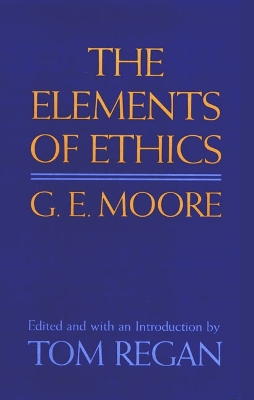George Edward Moore is among this century's most influential philosophers. Perhaps best known for his \u0022defense of common sense,\u0022 he also made important contributions to metaphysics and theory of knowledge. But it is in ethics, and especially owing to the positions he develops in his Principia Ethica, first published in 1903, that his ideas have had their most enduring influence. A forerunner to this famous work, The Elements of Ethics is a series of ten unpublished lectures that were presented by Moore, then in his mid-twenties. The Elements shows that Principia Ethica did not spring fully-formed from Moore's pen but evolved slowly over time. In these lectures, Moore begins with the same question he asks in Principia Ethica: What is Good? Importantly, his answer is the same one he offers in Principia and many of its supporting arguments also appear, though sometimes in embryonic form. Moreover, in these lectures we also find sustained critiques of those who commit the \u0022naturalistic fallacy,\u0022 and of John Stuart Mill's commission of it in particular.
In The Elements, however, Moore's position regarding ethics in relation to conduct differs in important respects from the one presented in Principia, and the former work contains important discussions, ranging from Christian ethics and the possibility of free will, not found in the latter.
- ISBN10 1592131948
- ISBN13 9781592131945
- Publish Date 9 April 2003
- Publish Status Active
- Publish Country US
- Imprint Temple University Press,U.S.
- Format Paperback (US Trade)
- Pages 248
- Language English
